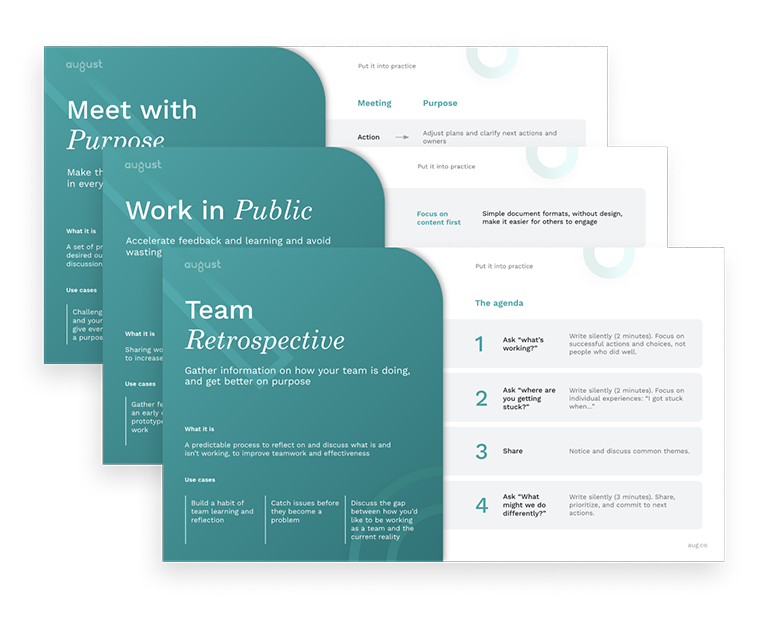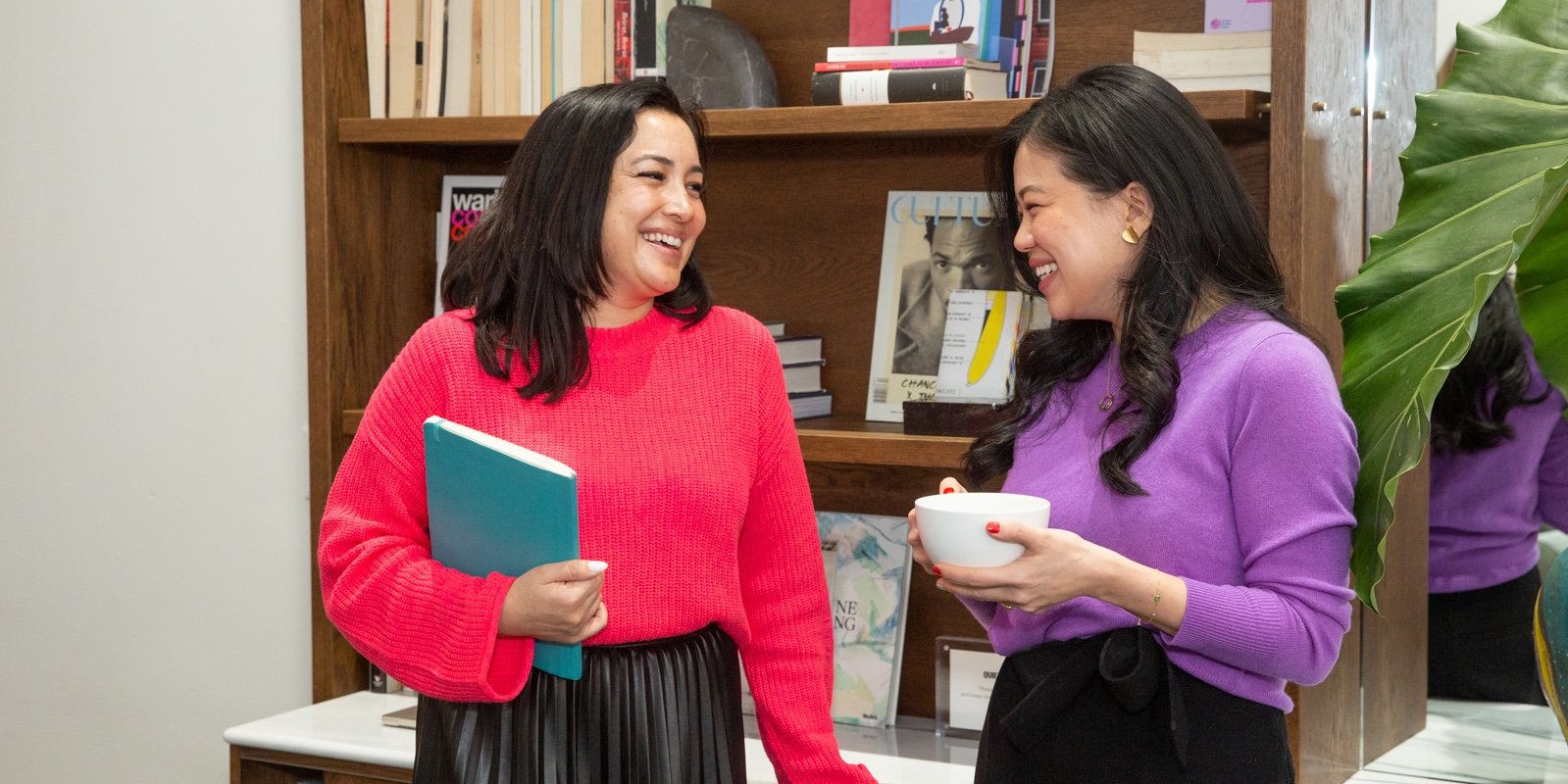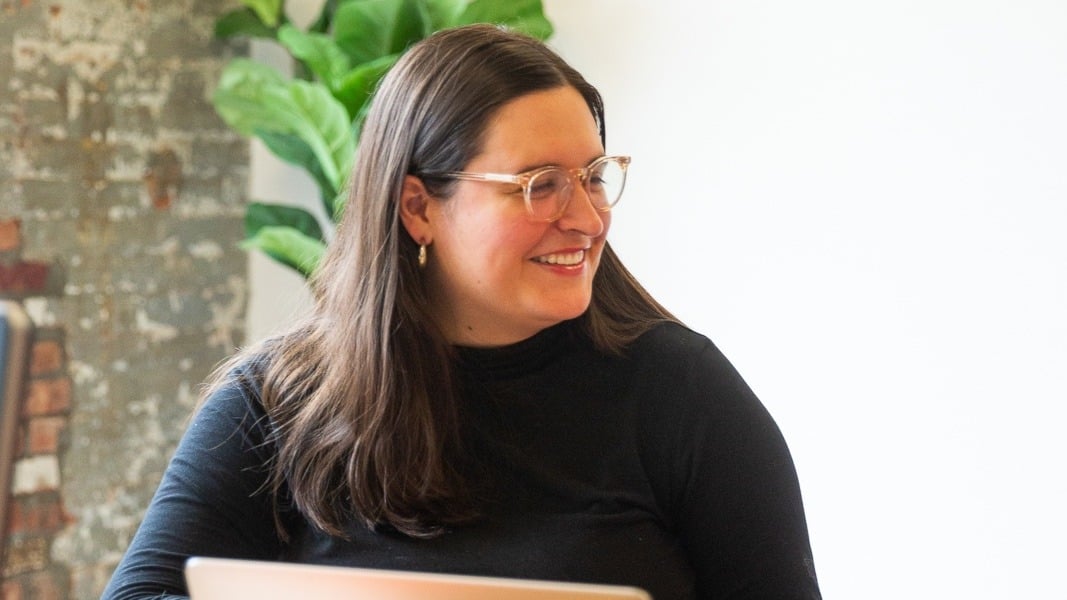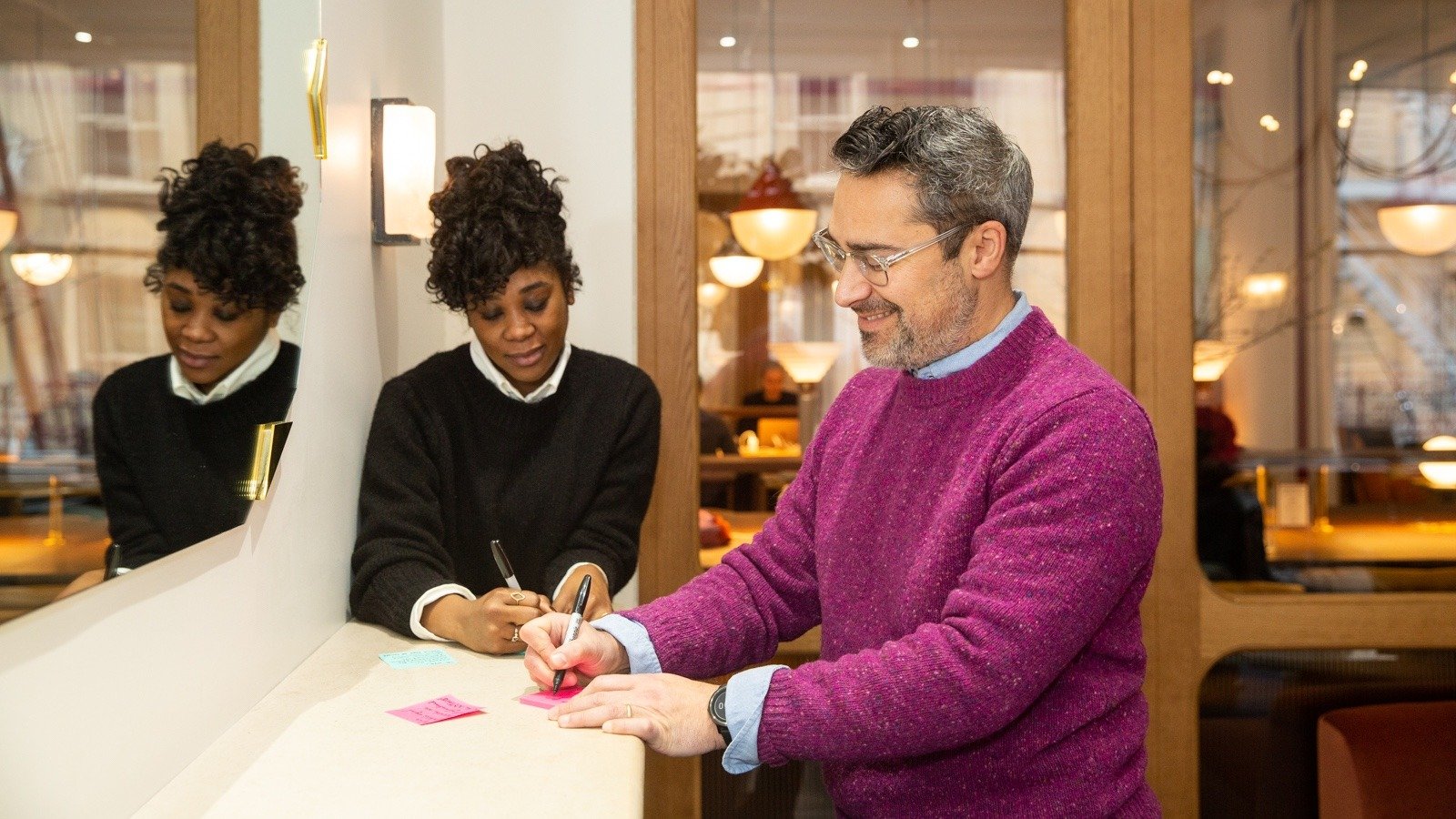Published July 18, 2023 | Updated May 20, 2024 | 8 minute read
Adapted from Karina’s featured talk at the Lesbians Who Tech Pride Summit 2023. View the full talk here!
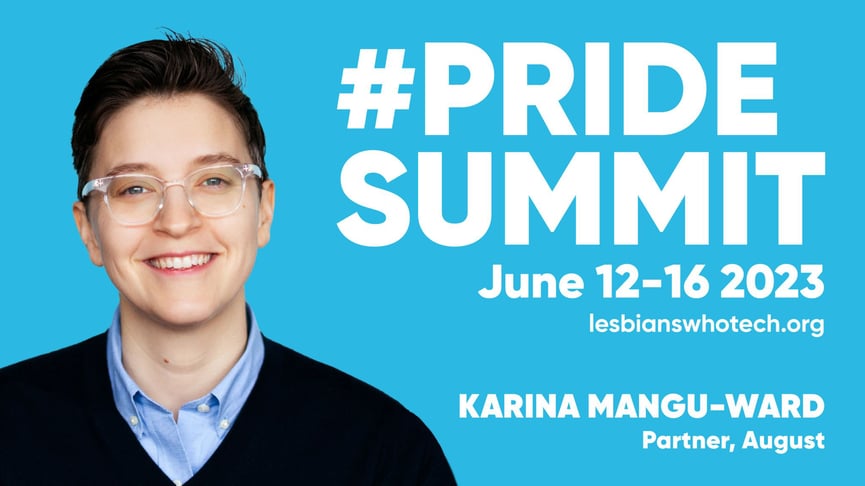
As an August pal, the question that keeps me up at night is: How do we build organizations that are fit for the future, and can weather the unpredictability of this wild world that we're living in right now?
Lately this question has caused more sleepless nights than usual, as I’ve processed the sudden rise of generative AI.
I’ve spent the last 15 years of my career helping people learn how to work better with each other. My entire job is about helping organizations build trust, psychological safety, and agility in human-centered ways.
But with the rise of generative AI, it’s looking likely that the next 15 years of my career will be focused on helping people learn to work better with machines.
Here’s the part that may surprise you: I don't see the rise of AI as a technical challenge. I see it as a human one.
Yes, the rise of this new technology will challenge us to redefine the role of AI at work. But in doing so, it will challenge us to redefine our role at work as human beings.
We all have to learn how to be human in an AI world.
AI in the workplace requires a BIG culture change.
Let’s start with the reality that most of us are at least a little overwhelmed by the ethical, ontological, and near-apocalyptic implications of artificial intelligence. I know I am. 😬
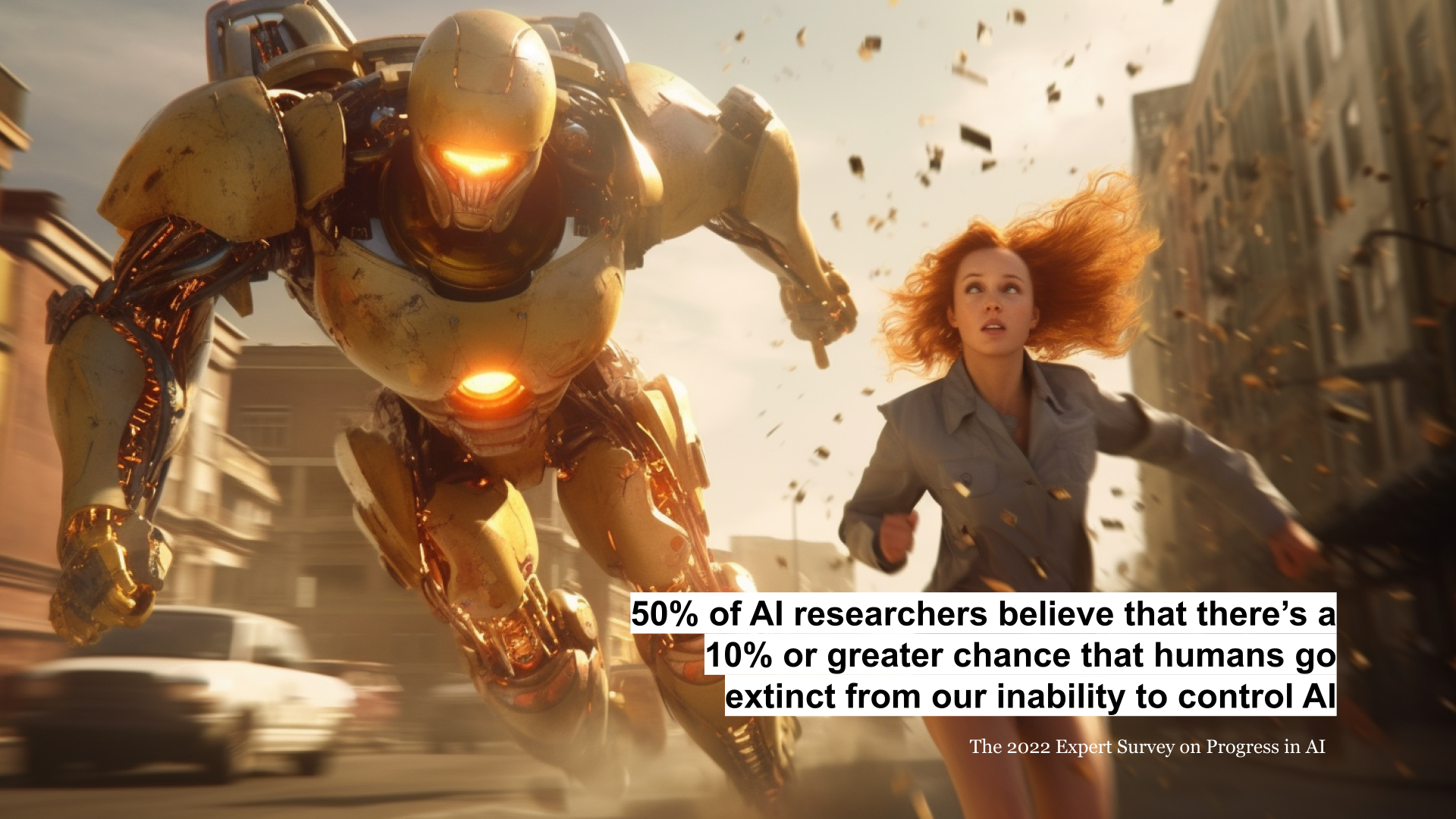
But I’m equally energized by how GenAI is shaping how we work, and how we relate to it as human beings.
I've been in the thick of it lately with ChatGPT, trying to figure out how to use it to enhance my own writing and creative thinking.
Apparently, so are 1.8 billion of my friends. Per month.
Adoption is off the charts. The genie’s out of the bottle. The technology is already in people's hands, and they are already using it to change the world, for better or worse.
Ready or not, we are diving into a new era in which we'll have to adjust to having both machine and human coworkers.
Human-AI collaboration is a strange new kind of partnership.
Let me share an inane and frankly embarrassing personal example. 🫠
When I was applying to speak at the Lesbians Who Tech Pride Summit (from which this blog is adapted), I engaged ChatGPT to help me brainstorm my title and blurb.
The results were basic and bland – at first. I prompted the chatbot to make it punchier, funnier, more appealing to a conference panel – and it just regurgitated generic synonyms.
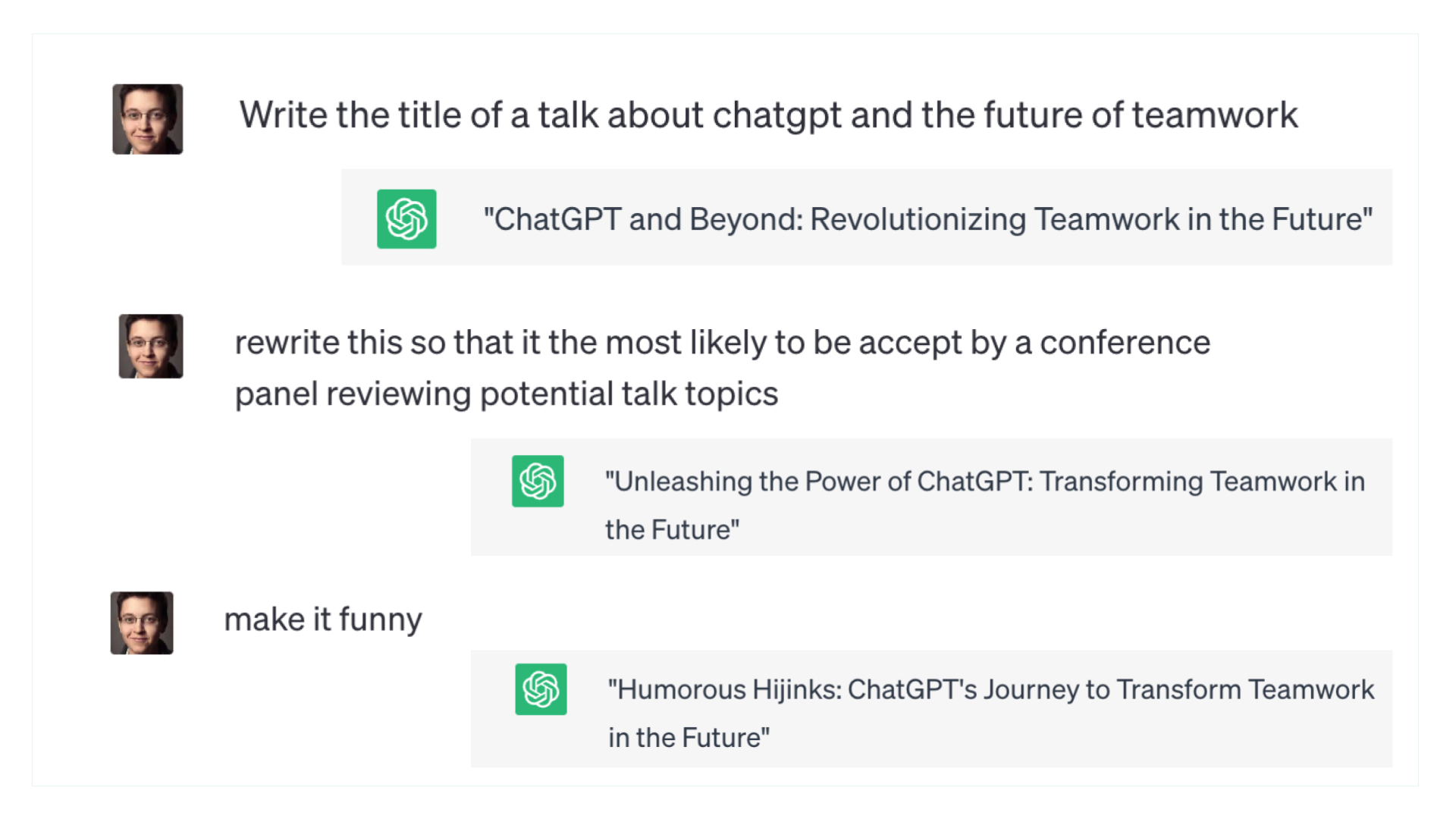
But then I prompted it to revise the blurb in the style of the New Yorker. (At this point I was running out of time and ideas.)
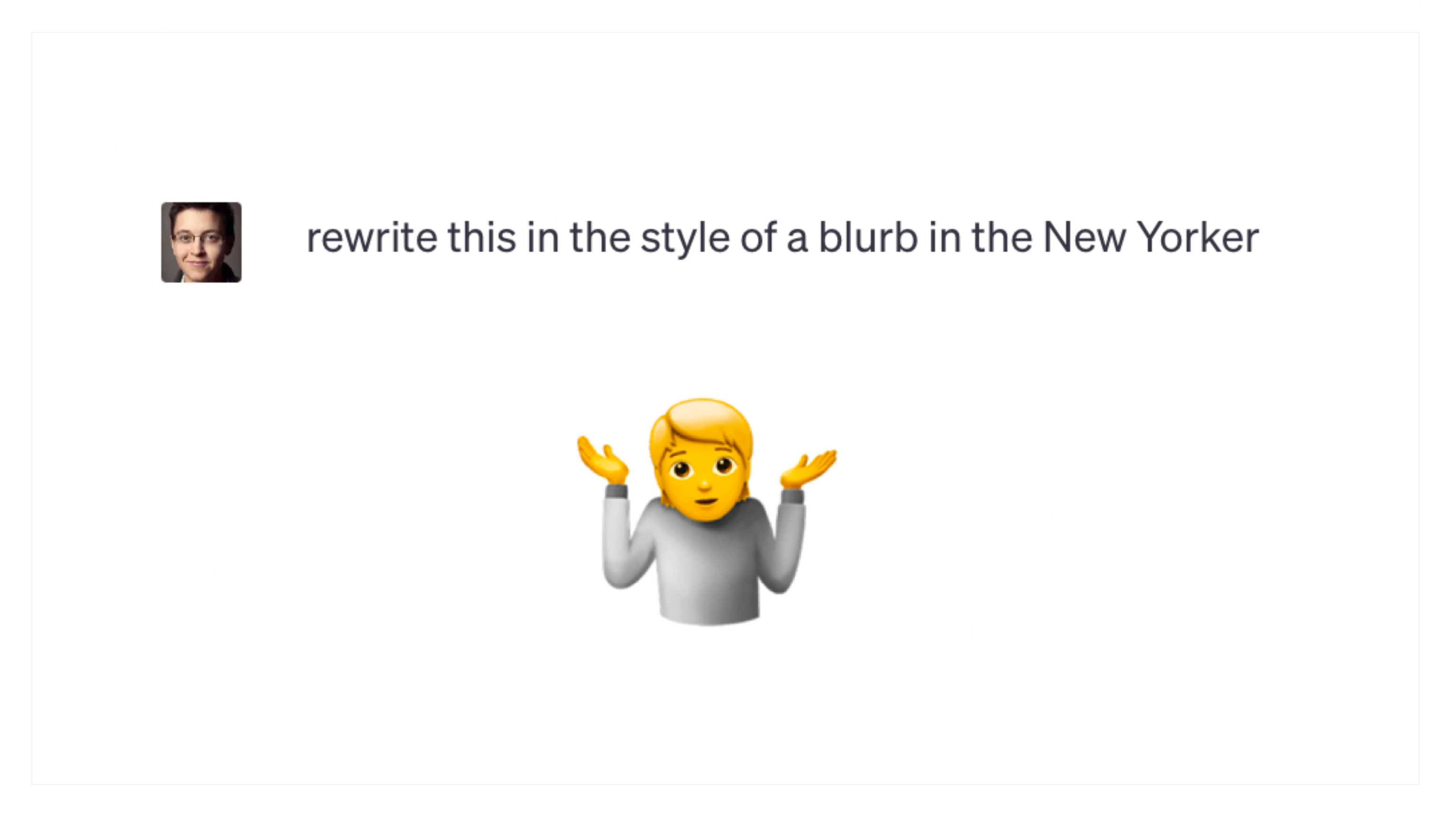
And for some reason, this was the clincher! ChatGPT gave me a solid blurb, more pithy and personable than before. I made a few tweaks to make the voice less robotic, and I hit submit.
All in all, the process took me 15 minutes. And while the results weren’t perfect, they were perfectly adequate for my needs, and saved me a lot of time.
This experience led me to 3 major “aha” realizations:
Aha #1: I can ask GenAI anything without fear of judgment.
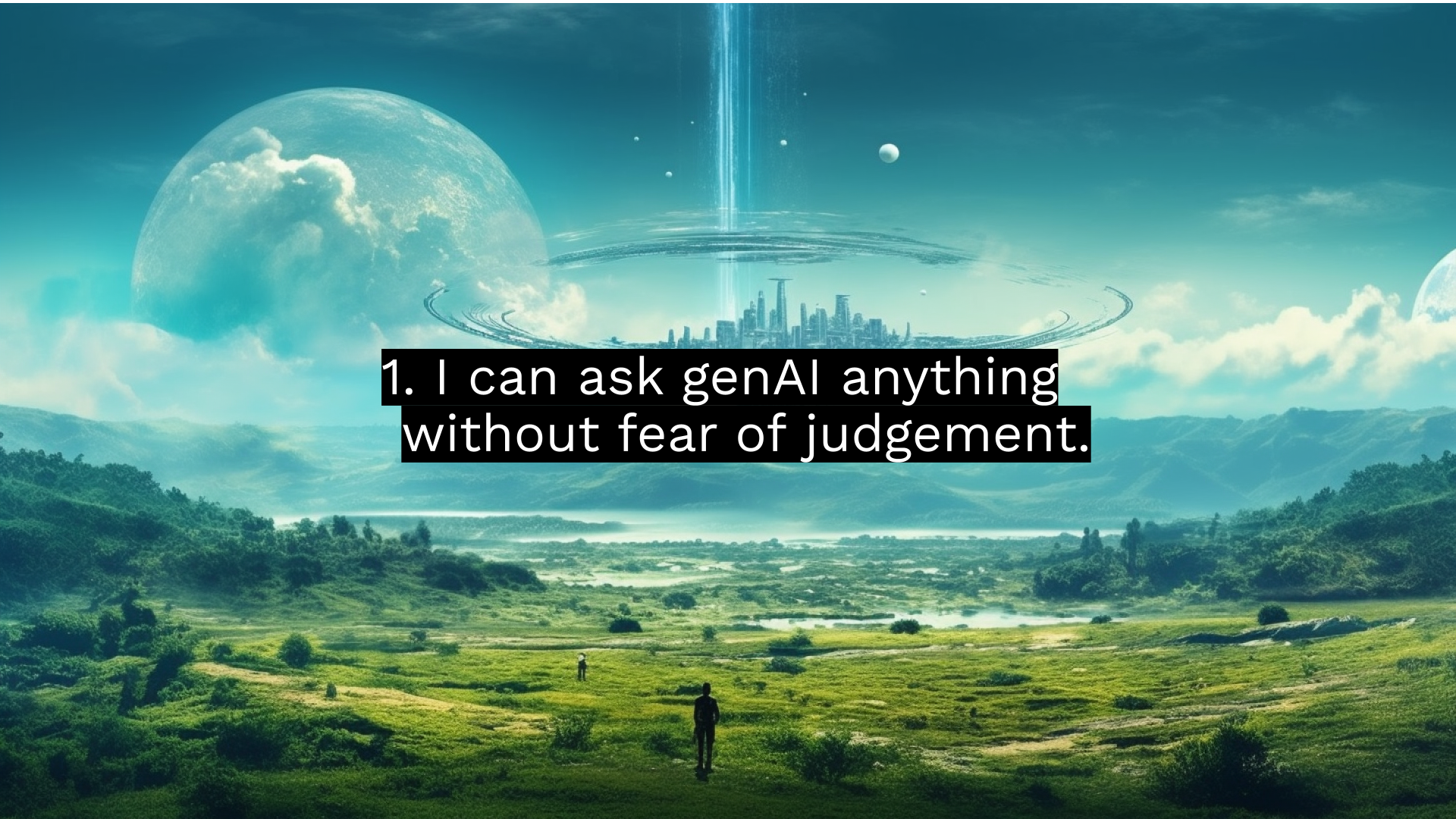
I don't have to pretend I know things. I don't have to phrase my questions to sound smart. I don't have to thank it for bad ideas.
Generative AI has no agenda, other than giving me what I need.
The upside here is that this enables rapid-fire brainstorming. But the shadow side is that it might become dangerously easy, as these tools get more sophisticated, to turn away from humans and toward the bots. We need to be careful of becoming overly reliant on AI colleagues as a way of avoiding human collaboration.
Aha #2: It’s my responsibility to mitigate bias and behave ethically.
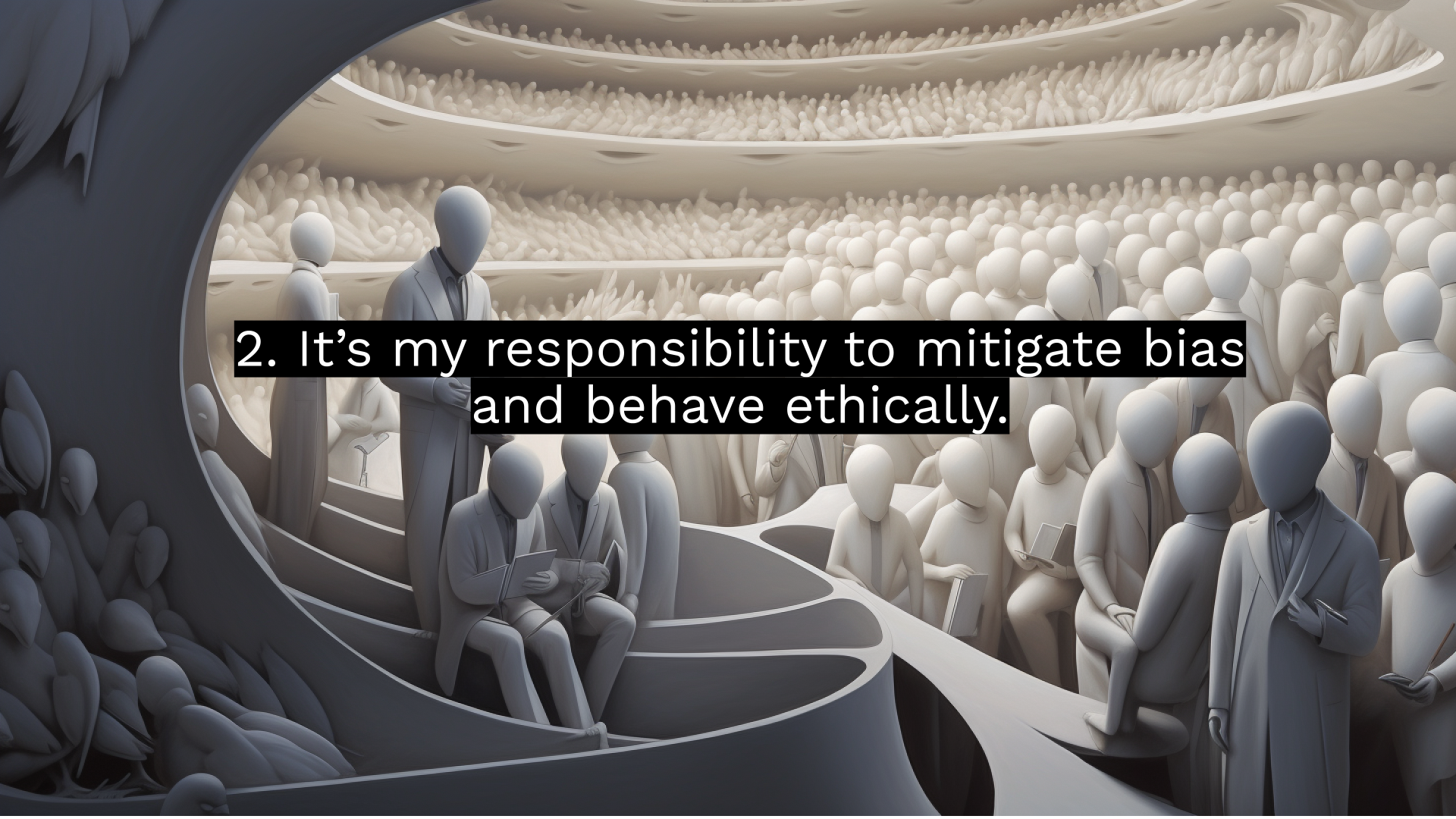
GenAI has no moral compass. No judgment. ChatGPT offered zero perspective on bias or inclusion until I prompted it to do so.
Humans have to consciously teach AI how to behave in an ethical way.
Below is an image my colleague generated using an AI tool called Beautify. What's wrong with this image?
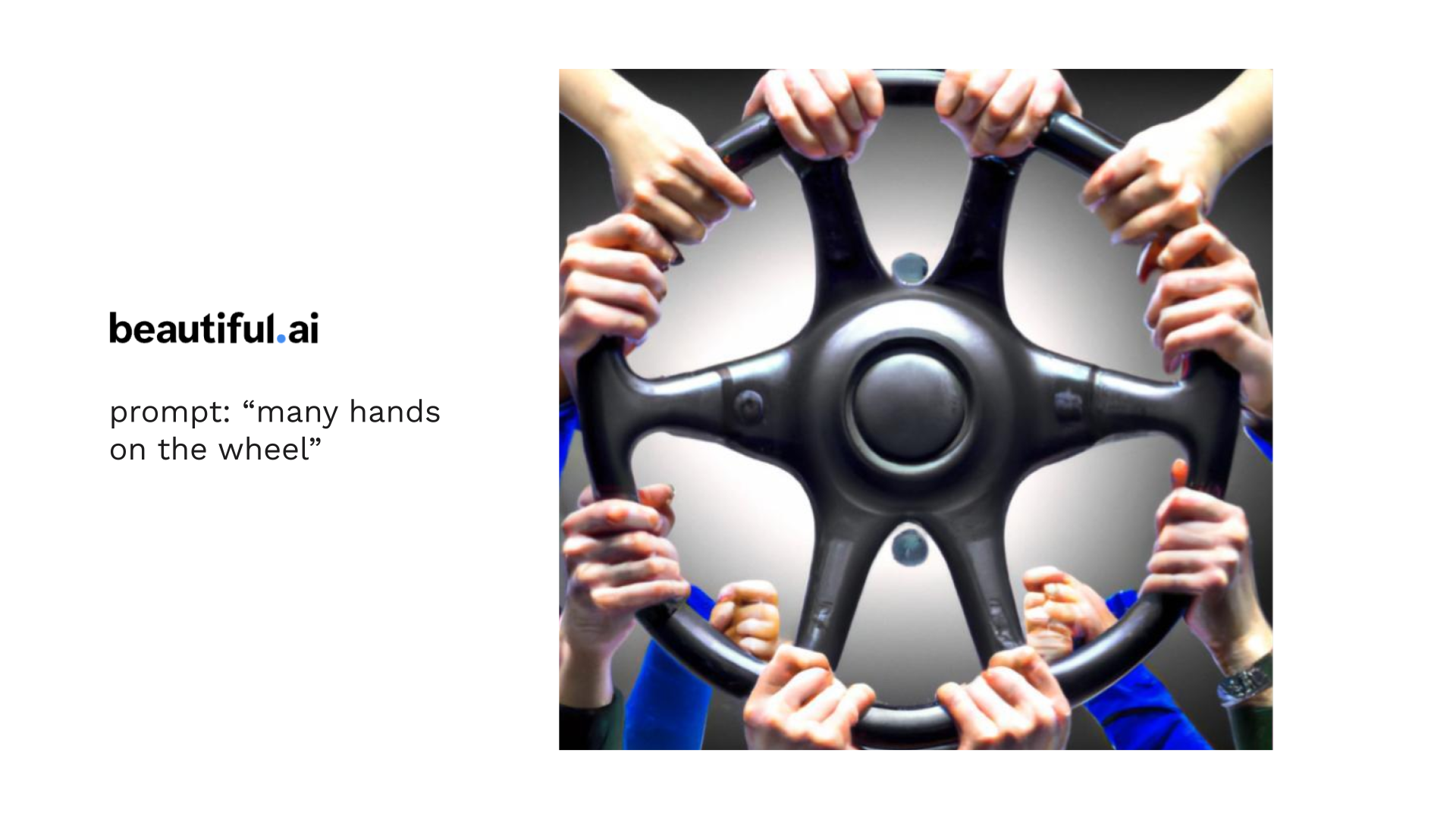
The AI tool interpreted “many hands” to mean “many white hands.”
The colleague who generated this was white. The colleague who noticed that this was a problem was a person of color.
These fast generation tools require a new kind of emotional, intellectual and ethical labor to correct the outputs. And by default, the people who will be expected to perform this labor will be folks who already experience marginalization.
Aha #3: Writing is thinking.
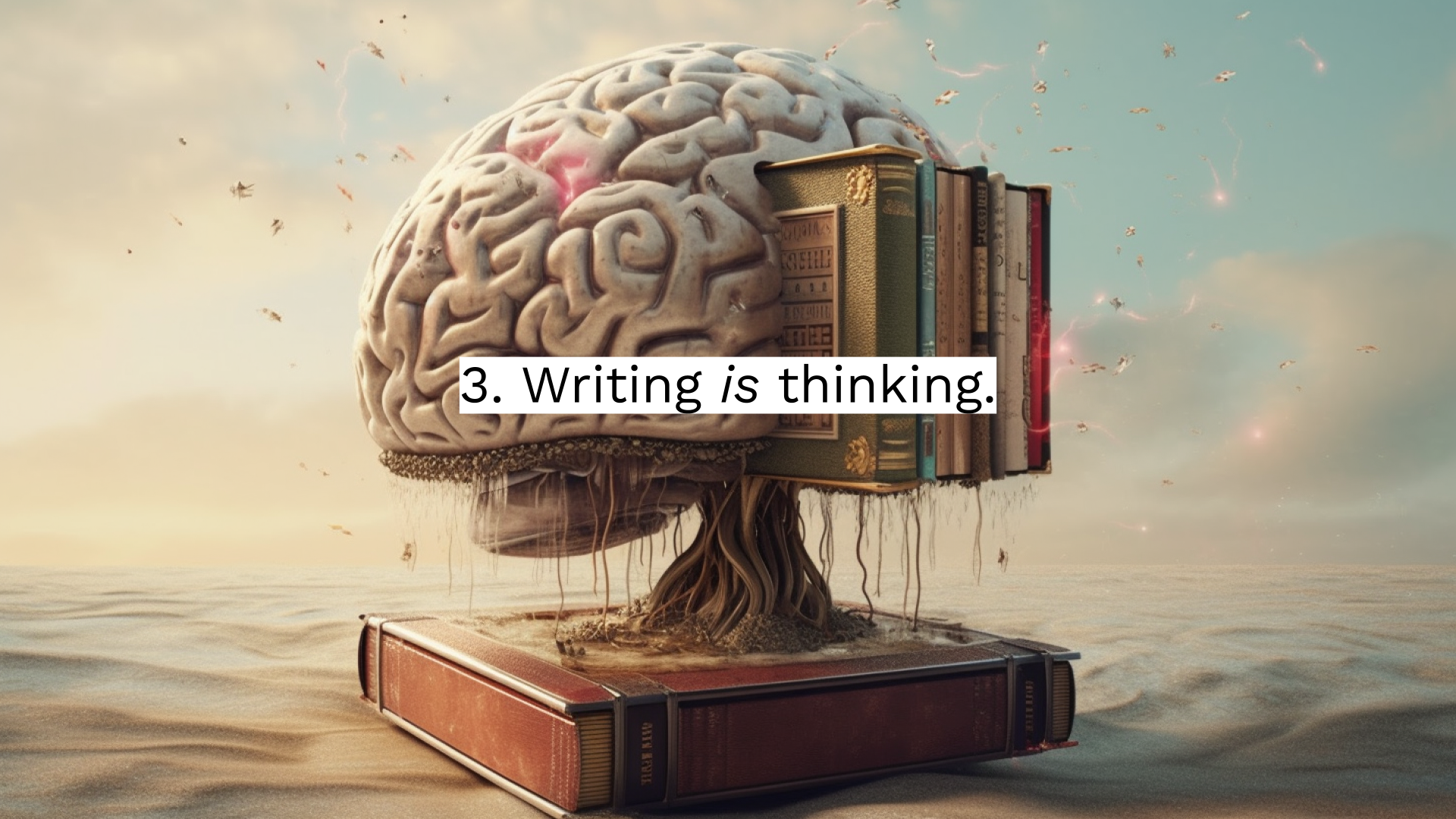
I've always believed that writing is the same as understanding is the same as thinking.
Personally, I’m an egregiously slow writer. It might take me 30 minutes to write a six-line email. But by the time I’ve written it, I’m 100% clear on what I need to say, and I’ve said it in my own way.
So what does it mean when an AI writes the first draft in 15 seconds?
In a world where chat GPT is doing so much of the writing, who's doing the thinking?
“When faced with the tyranny of the blank page, people are going to push The Button.” -Ethan Mollick
When everyone is pushing a button in place of writing a first draft, will our writing skills erode? What will that do to our thinking skills?
Learning to talk to AI is going to be one of the most important skills of the next century.
But we’re also going to need to learn when to stop talking to AI, and do hard things.
How we started experimenting with human-AI collaboration at August
AI has been around for a few decades now, automating tasks and analyzing data. But the rise of generative AI is blurring the boundary between user and creator in a new way. And it's accessible to everyone with a phone.
“Communications tools don't get socially interesting until they get technologically boring.” -Clay Shirky
My hunch is that something as technologically boring as a chatbot really does have the potential to transform our everyday rhythms of collaboration and teamwork, in ways that will require us to rethink our workplace identities and change the DNA of our organizations.
Recently I set up a little experiment for my team. I challenged us to maximize the capabilities of humans and AI to create a mascot and to share it with the world.
We used ChatGPT to brainstorm ideas, Midjourney to generate sample images, and hopped back to ChatGPT to write a LinkedIn post. The whole experience was a delight.
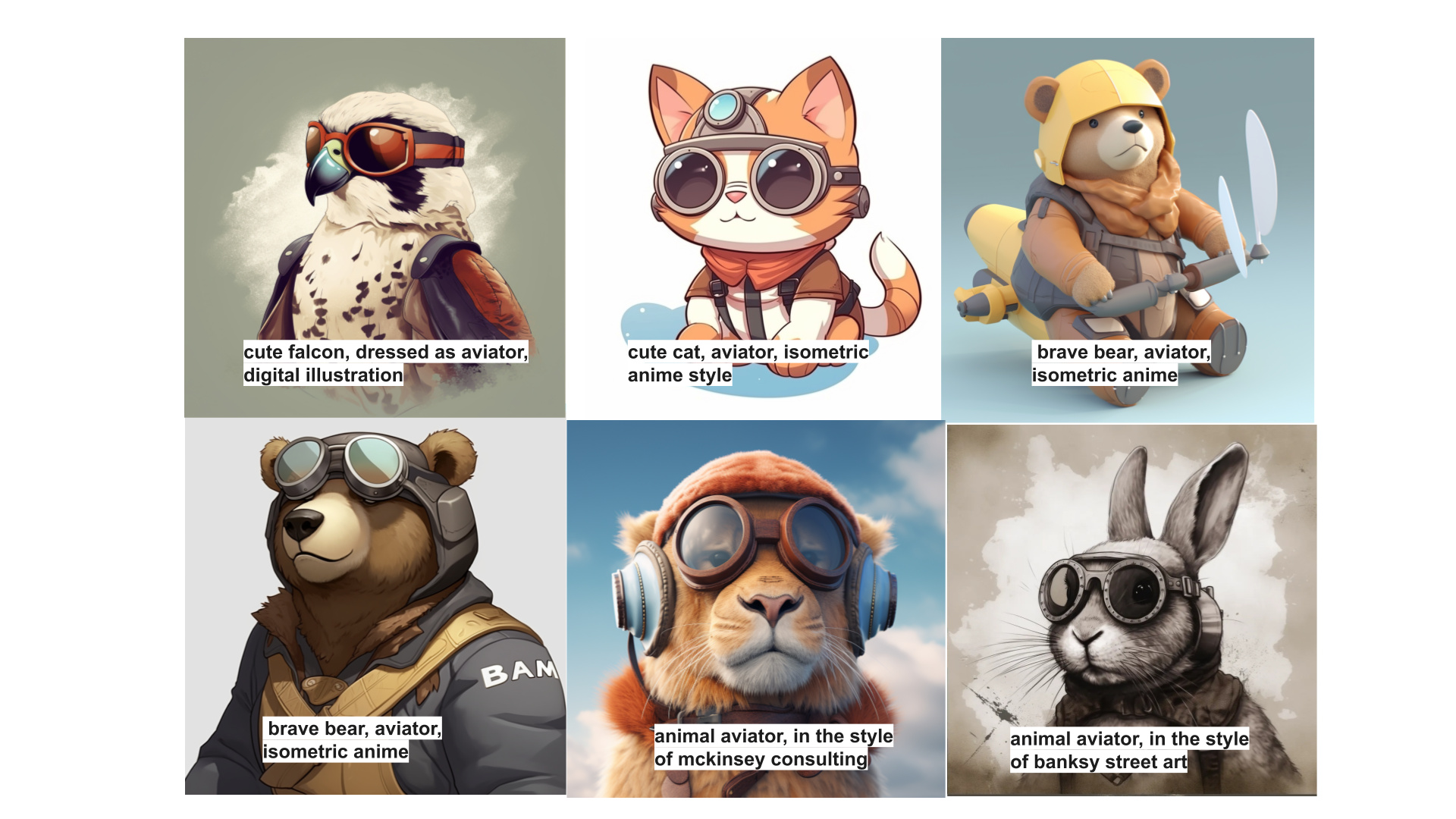
Over the course of a 20-minute collaboration, we created something that was only possible because we were partnering with AI.
Afterwards, we analyzed the contributions of humans and AI. The humans were giving instructions, evaluating ideas, and debating choices. Meanwhile AI was offering ideas, illustrating concepts, responding to our feedback.
But the list of what humans and AI were doing together is what blew us away.
We realized that Midjourney and ChatGPT had been interpreting our instructions, imagining things we never could have, creating ideas, applying their own reasoning, and making choices about what to share back with us.
Those are the functions of a real creative partner, not an automation.
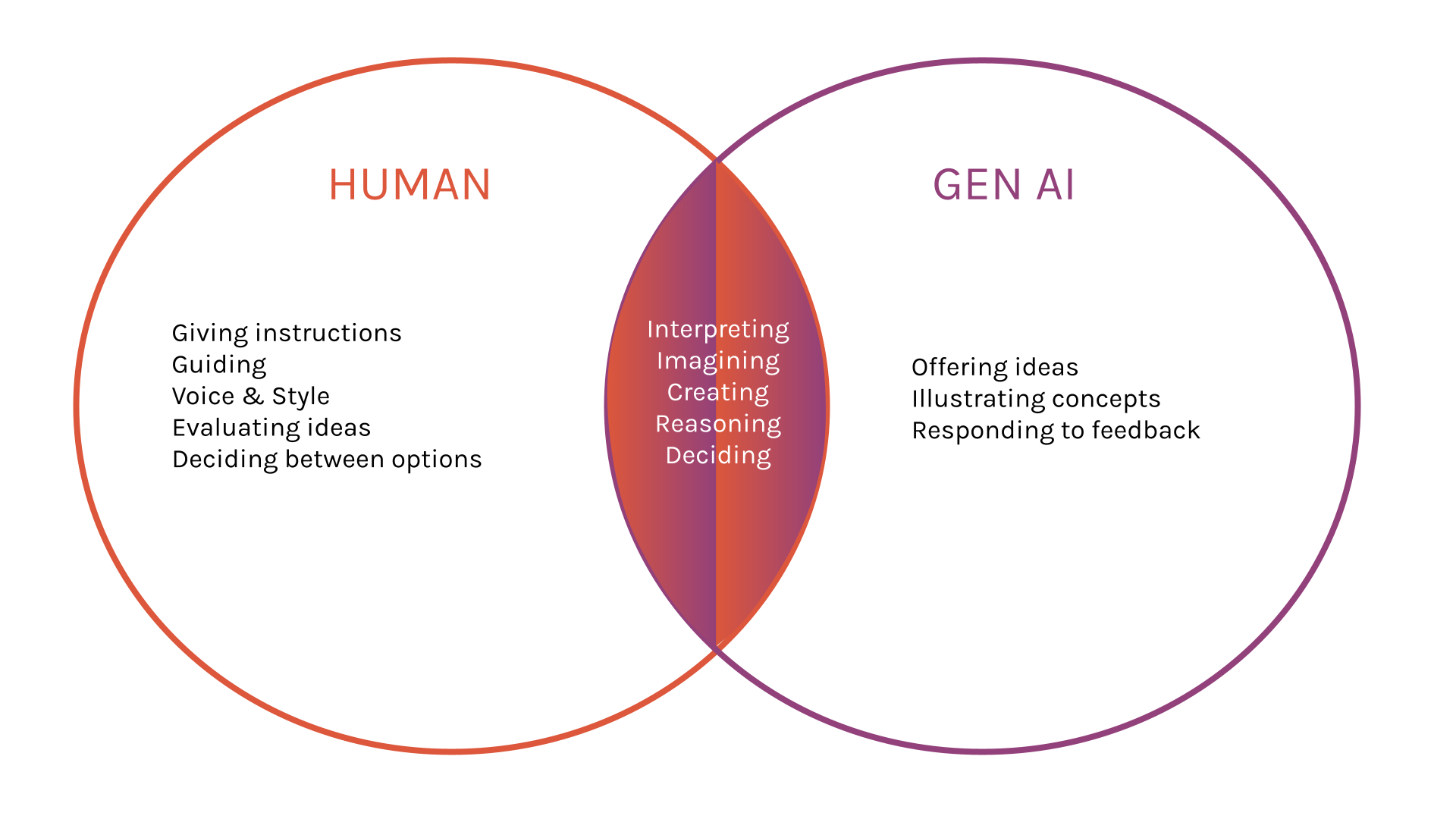
Human-AI collaboration is shaping the future of work.
In the 2021 book The Age of AI, Henry Kissinger and his co-authors articulate the idea that for humans accustomed to a monopoly on complex intelligence, creativity and expertise, AI is going to challenge something about our self perception.
We are all going to be impacted by the rise of AI. Our jobs will change. Our futures will be reshaped in ways we can’t yet predict.
It’s up to all of us to ensure an equitable, human-centered transition.
But if we’re able to shift our self-perceptions and intentionally engage in the dance that humans and AI can do together – when we get it right, we’ll be unleashing human potential, and unleashing AI potential, and doing it in a responsible way.
I think we should be thinking about AI as a new form of talent within our organizations.
Talent requires long term investment, training, assignment, development, retraining, and reassignment. And carries moral and ethical consequences, and needs to be managed, with intention, with clarity and with accountability.
I think this is one of the most helpful ways we can think about our new creative partner.
I don’t have it all figured out. But I would encourage us all to keep asking:
What does it mean to be a human in an AI world?
For me, the answer is to embrace being human. To be joyful, trusting, connected, empathetic. To stay curious, and look for what’s uniquely human in this evolving human-AI collaboration. That's what machines can't do.
If you’re a senior leader looking for support for your AI integration, please reach out! We are excited to partner with you in building human relationships with this powerful new coworker.

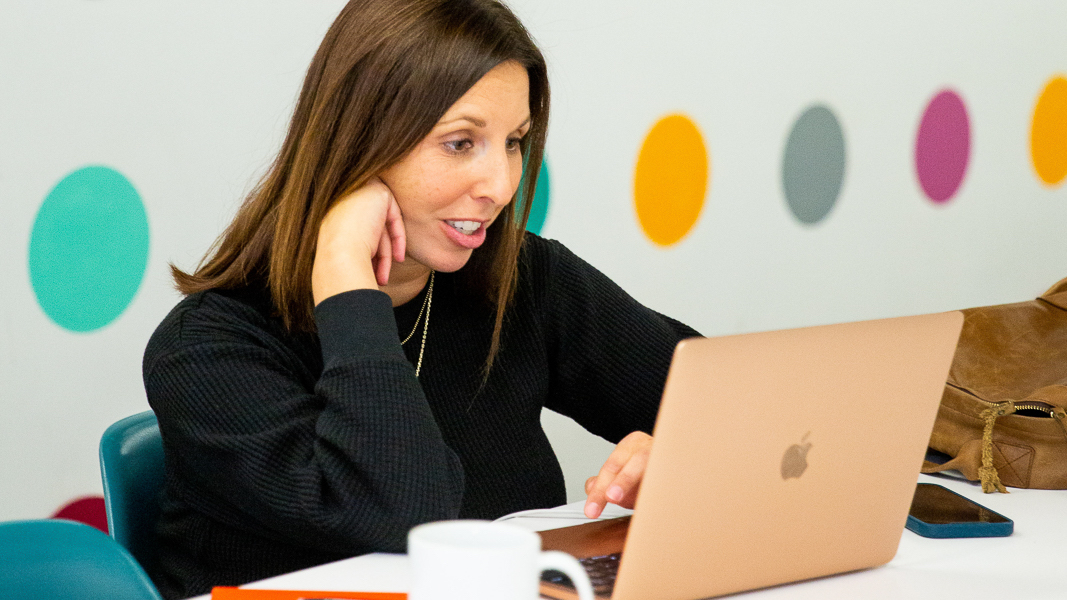
.jpg)


